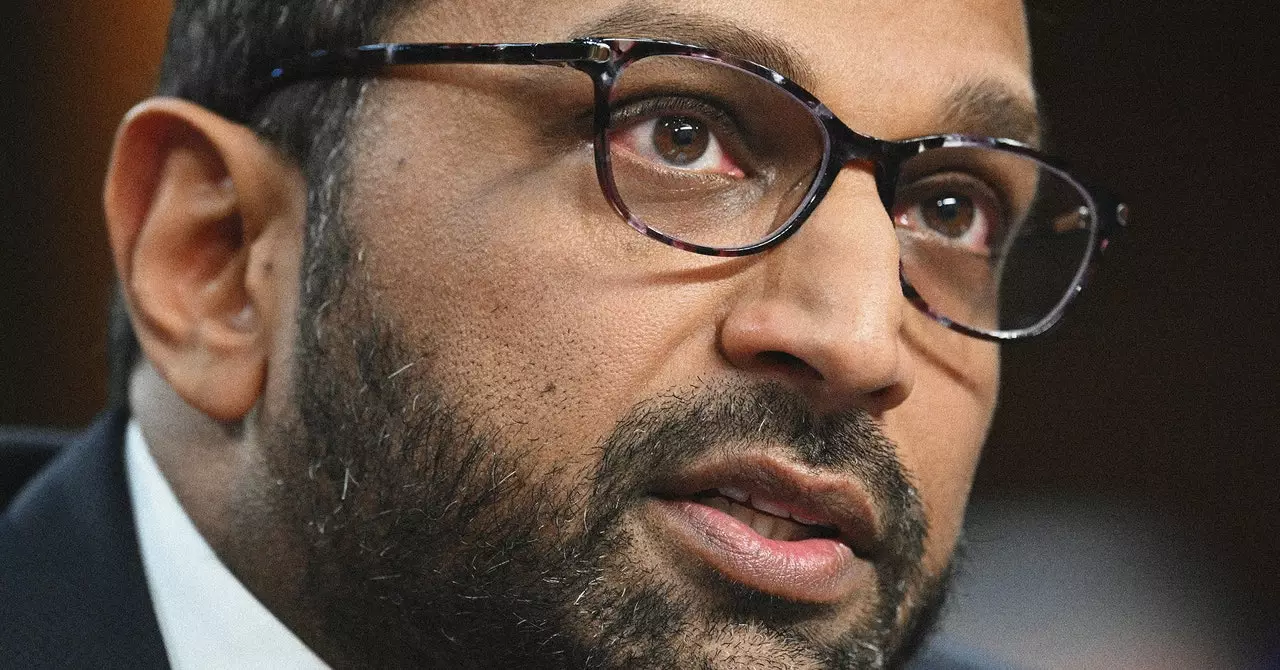The appointment of Kash Patel as President Donald Trump’s nominee for the head of the Federal Bureau of Investigation (FBI) has raised eyebrows, particularly due to his financial connections to Shein, a fast-fashion powerhouse mired in controversy. With Patel reportedly holding stock valued between $1 million to $5 million in a company linked to Shein, it is imperative to delve into the intricate relationship between his financial interests and the potential implications for the role he seeks.
Patel’s consulting relationship with Shein, which began only a month prior to the company retaining a lobbying firm associated with Pam Bondi, raises questions about the timing and motivations behind his involvement. The revelation that Patel was allocated restricted stock units (RSUs), which are typically bestowed upon employees, adds another layer of complexity to his financial profile. RSUs are structured in such a way that they cannot be sold until certain conditions are met, suggesting that Patel’s involvement with Shein could extend well into the future—potentially coinciding with his duties as head of the FBI.
Notably, Patel has made it clear that he does not intend to divest from Shein, which further amplifies concerns over his dual interests. While legal experts argue that officials in such positions are not forced to divest unless a clear conflict of interest arises, the perception of a conflict is compelling enough to warrant scrutiny and potential recusal from any matters involving Shein.
Shein, known for its low-cost clothing produced predominantly in China, has faced intense scrutiny from lawmakers over its business practices. Critics have raised alarms about labor conditions, environmental impact, and broader ethical considerations surrounding fast fashion. This scrutiny was particularly intense around the time Patel began consulting for the company. His involvement in a venture that is attempting to navigate a contentious public and regulatory landscape could compromise the integrity of the FBI, should he be confirmed.
Moreover, the company’s aspirations to go public in the United States have been fraught with challenges, facing opposition from figures like Marco Rubio, who questioned the legality and ethical considerations of Shein’s business model. Patel’s position could be perceived to bolster Shein’s efforts to secure favorable treatment from regulatory authorities, thereby painting a concerning picture of potential bias.
As Patel’s situation unfolds, it is essential to consider the ethical ramifications of his nomination. Jordan Libowitz from Citizens for Responsibility and Ethics in Washington voiced what many are speculating: that while Patel may remain within legal bounds, the optics of his financial ties to a controversial company under brush are troubling. His continued financial stake in a company while poised to lead a federal investigation agency raises questions about impartiality.
Ethics committees and watchdog organizations play a crucial role in monitoring such appointments, and it becomes increasingly apparent that stronger safeguards must be established. Suggestions for Patel to divest or recuse himself from matters related to Shein might mitigate these ongoing concerns but do little to assuage the inherent issues of interests intersecting at a pivotal governance juncture.
The nomination and subsequent confirmation process for Kash Patel amid his financial affiliations present an urgent crossroad in American governance. As Patel stands before the Senate, lawmakers must grapple not only with the legality of his associations but also with the ethical implications of installing an official with notable conflicts of interest. The integrity of the FBI may hang in the balance, as the agency must embody impartiality, fairness, and transparency—principles that are fundamentally at odds with vested financial interests.
In navigating this complex territory, the Senate must take into account not just the qualifications of Patel as an individual, but also the potent symbol such an appointment represents within the broader context of governance, ethics, and public trust. The outcome will likely set precedents that echo far beyond the proceedings of an appointment, influencing public perceptions of power within politically charged landscapes.

